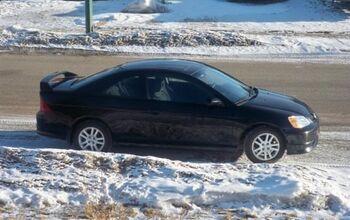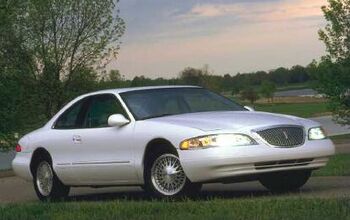Piston Slap: Relax Don't Do It Edition

TTAC regular VerbalKint asks:
1. Should (can) any type of lubricant (ever) be used on the treads of bolts being torqued to specification?
2. Have you seen this site? I thought it was pretty well done, how ‘bout you? I really liked their section on oil scams additives.
Sajeev answers:
Question 1: As an aside, check your car’s service manual: everything is torqued to spec. Or can be, if your OCD requires a certain ft·lb rating on your velvet-covered glovebox liner. When it comes to lubricants, I’ve used a dab of anti-seize on threads making their home in aluminum parts. And that’s about it. Unless a service manual says otherwise, don’t lubricate a bolt. If removal is your concern, marinate them in PB Blaster (or equivalent) a few minutes before you put a wrench on them. Delicious!
Question 2: I had not seen that website until now, and TTAC doesn’t go out of our way to recommend other sites.
But this time, why the heck not? The site is informative, easy to read and (given the learning curve of the subject matter) a fun read too. Remarking that “Amsoil [is] one of the biggest inadvertent offenders of the fake API symbol” is on par with something in an RF editorial. And that’s entertaining because it’s true.
[Send your technical queries to mehta@ttac.com]

More by Sajeev Mehta


































Comments
Join the conversation
IMHO another good TTAC article. Yes, The Oil Bible site has a lot of interesting info! There are a few oil additives out there that were created by true oil chemists, and focus on seal protection, oxidation prevention, and neutralization of blow-by based acids. These have actual test results, and very few testimonials. But it's good the FTC found an extraordinary large number of fakers. That's main reason there are many less oil additives advertised these days. Wrt torquing, sounds like good idea to check with Mfr. as to how adding corrosion prevention might affect tightening. If memory serves, biggest problem is with dis-similar metals, which can weld themselves together from electro-galvanic corrosion.
"which can weld themselves together from electro-galvanic corrosion." Honda has that problem with crank pulley bolts requiring 300 ft lbs to break. Honda recommends oil on the threads and bolt face.
The Engine Oil Bible misspells polyalfaolefin on the homepage. I guess everyone with an IP address is an expert these days!
For steel on steel, I use anti-seize on rusty threads where the bolt or nut will not turn easily without it. The anti-seize simply reduces the friction to that of a new, dry thread. I would never torque a dry aluminum (or titanium) thread, unless there were specific instructions not to. I spent too long working as a mechanic in a bicycle shop (where most bolts thread into aluminum parts) to leave those dry!